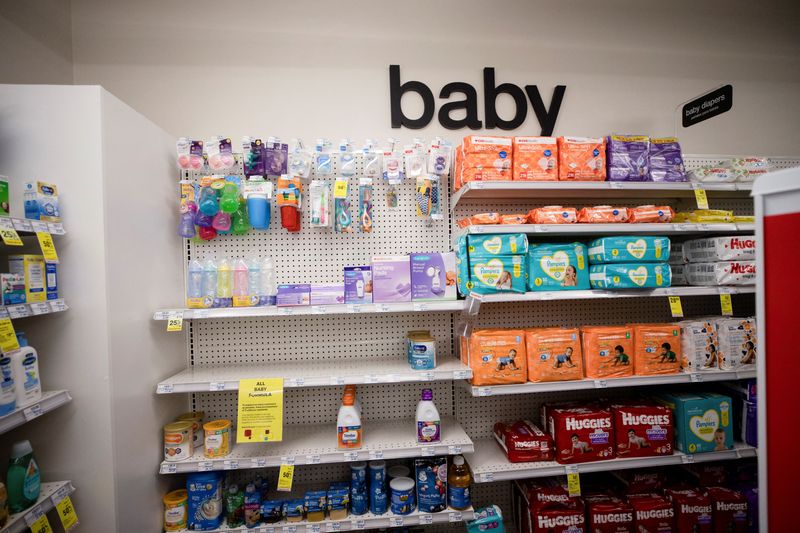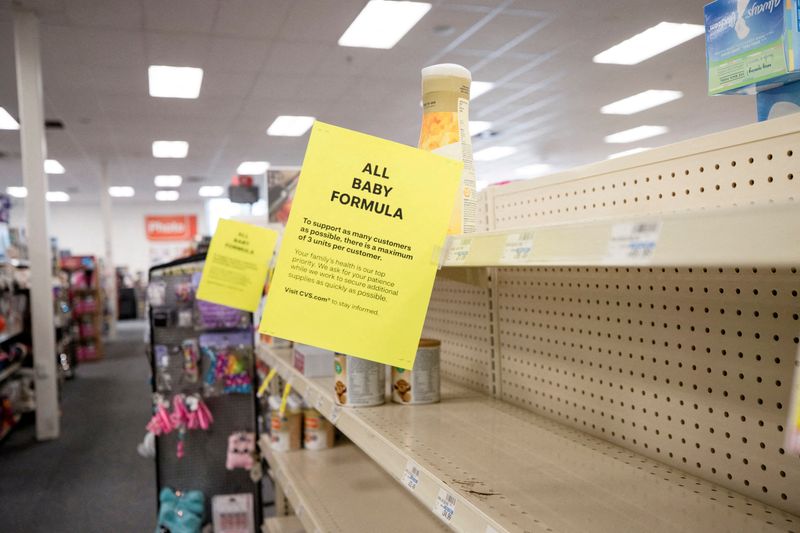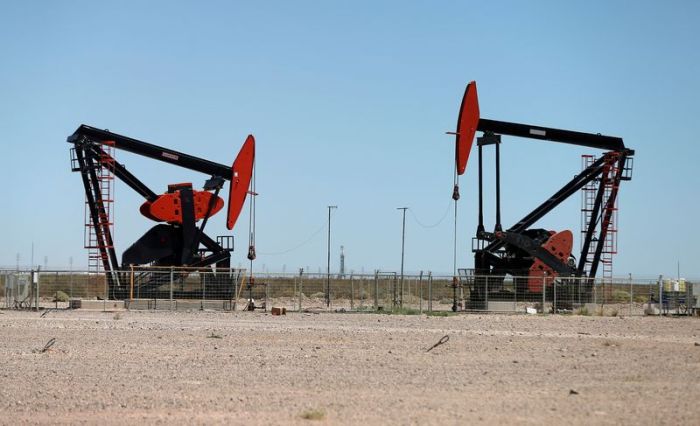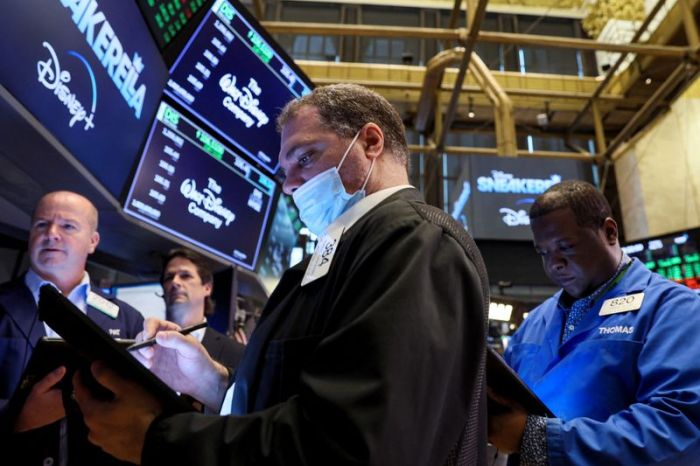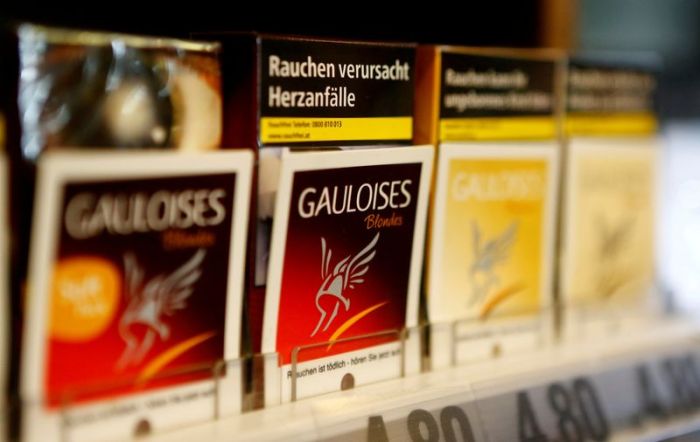LONDON (Reuters) – Top baby formula makers Reckitt Benckiser and Nestle have ramped up supplies to the United States to resolve a shortage that has emptied shelves and caused panic among parents.
Baby formula aisles at U.S. supermarkets have been decimated since top U.S. manufacturer Abbott Laboratories in February recalled formulas after complaints of bacterial infections.
Abbott said on Monday it had reached an agreement with the U.S. health regulator to resume production of baby formula at its Michigan plant, marking a major step towards resolving the nationwide shortage.
In the meantime, other baby formula makers have stepped up production and shipped extra supplies to the United States.
Reckitt Benckiser is boosting baby formula production by about 30% and making more frequent deliveries to U.S. stores, an executive told Reuters on Tuesday.
The company, which makes its U.S. formula in three facilities in Michigan, Indiana and Minnesota, has granted plants “unlimited overtime” to put in extra shifts, Robert Cleveland, senior vice president, North America and Europe Nutrition at Reckitt, told Reuters in an interview.
Prior to the Abbott recall, Reckitt supplied just over a third of the U.S. infant formula market compared with Abbott’s roughly 44%. Britain-based Reckitt told Reuters it now accounts for more than 50% of total baby formula supply in the country.
“We normally might pack an entire truck before we ship it. For timeliness, we’re not doing that. We’re packing it with as much product as we have and then we’re just getting it out the door,” Cleveland said.
The United States will allow baby formula imports from foreign makers that do not usually sell their products there, the Food and Drug Administration said on Monday.
Nestle is flying baby formula supplies to the United States from the Netherlands and Switzerland, the company said in an emailed statement to Reuters on Tuesday.
The world’s largest packaged food group is moving Gerber baby food formula to the United States from the Netherlands and Alfamino baby formula there from Switzerland, it said.
“We prioritized these products because they serve a critical medical purpose as they are for babies with cow’s milk protein allergies,” the company said. “Both products were already being imported but we moved shipments up and rushed via air to help fill immediate needs.”
(Editing by Matt Scuffham and Mark Potter)

